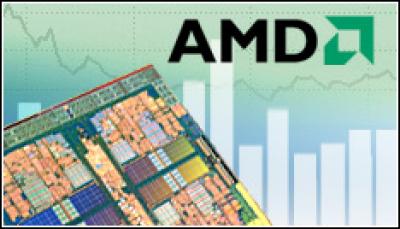AMD Takes Chip Share from Intel

Notebooks maybe the telling factor for the underdog
Intel has lost market share in the world microprocessor market to AMD – for the first time in three quarters, according to research firm iSuppli.
In numbers released June 9, iSuppli found that for the first time in three consecutive quarters, Intel’s market share declined by 2.5 percent, to 79.1 percent in the first quarter. During that same period, rival Advanced Micro Devices saw its market share rise 2.3 points, to 12.8 percent.
Overall, the global chip market — like most sectors of the technology industry — was hit hard by the worldwide recession, which drove down revenues by 20.6 percent in the first quarter, to $6.9 billion, according to iSuppli. During the same period last year, revenues hit $8.6 billion. Projections for the year call for revenues to decline 15.8 percent, to $28.6 billion, down from $34 billion in 2008.
The market numbers include not only the x86 processor space, but other platforms as well, such as RISC processors.
Matthew Wilkins, an iSuppli analyst, said AMD was able to reverse Intel’s three consecutive quarters of market share growth through “strong performances in each area of its microprocessor portfolio, particularly in its notebook products. This was an impressive feat given the economic downturn and the weakness in the PC and server markets.”
Intel was able to carry most of 2008 not only on the strength of its broad portfolio, but also on the popularity of its Atom chip, aimed at the fast-growing netbook space, according to iSuppli.
Intel and AMD have spent much of the first half of the year aggressively rolling out new products. For example, Intel in March released its Xeon 5500 Series “Nehalem EP” processors for two-socket servers. Two months later, AMD rolled out its six-core “Istanbul” Opteron for systems with two to eight sockets.
The rivalry between the two was heightened in late May when the European Commission found that Intel had violated antitrust regulations through rebates and direct payments to OEMs, including Hewlett-Packard and Dell. European regulators fined Intel $1.45 billion, but Intel officials said they will appeal the decision.
AMD officials applauded the EC’s actions, saying that Intel had used its size to unfairly quash competition.